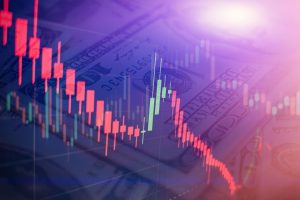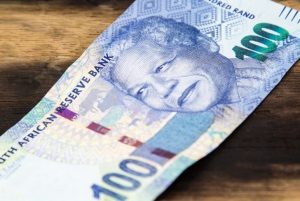US DOLLAR INCHES LOWER AS DOVISH POWELL COMMENTS OFFSET UPBEAT JOBS DATA
The dollar slipped on Tuesday in thin, choppy trading after Federal Reserve Chair Jerome Powell struck a moderately dovish tone in his comments, suggesting that the U.S. central bank is more than likely to start its easing cycle later this year. Powell, in a monetary policy conference in Portugal, said the U.S. economy has made significant progress on inflation as it gets back on the disinflationary path. His remarks were viewed as dovish, analysts said. Comments by the Fed’s top official outweighed data showing U.S. job openings increased in May after posting outsized declines in the prior two months. Job openings, a measure of labor demand, rose 221,000 to 8.140 million on the last day of May, according to the Job Openings and Labor Turnover Survey or JOLTS report. Economists polled by Reuters had forecast 7.910 million job openings in May. Data for April was revised lower to show 7.919 million unfilled positions instead of the previously reported 8.059 million. “Powell didn’t really say anything new, but I would say he was slightly dovish,” said Erik Bregar, director, FX & precious metals risk management at Silver Gold Bull in Toronto, adding that his remarks helped the dollar push a little lower. “But I would argue that the JOLTS report is not as strong as it looks on the surface. The April number was revised down and so the market is trying to shake off the JOLTS report. That’s why the dollar is not as high as it was initially after the release.

POUND GAINS ON DOLLAR AS BRITONS VOTE IN NATIONAL ELECTION
The pound gained on Thursday against a broadly weaker dollar which was hurt by soft U.S. economic data, as Britons voted in a parliamentary election that investors hope will bring some stability to British politics. Opinion polls show Keir Starmer’s centre-left Labour Party on course for a landslide victory over Prime Minister Rishi Sunaks’s Conservatives, who have led the country for 14 often turbulent years. The pound was up 0.1% against the dollar at $1.2755 on Thursday, having gained 0.46% Wednesday after soft U.S. economic data sent the dollar lower across the board. GBP=D3 FRX/ The pound has spent most of 2024 down slightly against the dollar – while outperforming other major currencies – though Wednesday’s dollar weakness meant sterling was last up 0.23% against the dollar this year. “It was also the second best performing G10 currency last year, but you have to bear in mind that in September 2022 it was at its weakest ever, so if you look at sterling now it is not a strong currency but it has recovered from a very low base,” said Jane Foley, head of FX strategy at Rabobank. The pound’s recovery has been underpinned by Britain’s better-than-feared economic performance, the Bank of England’s cautious attitude to rate cuts relative to European peers, with hopes that a comfortable election win for Labour will usher in greater political and economic stability also in the mix. “If investors carry on believing that significant tax increases are not likely, that the Labour Party wants to stimulate growth by convincing investors to come back to the UK, we could see a moderate rally for the pound,” said Foley.
DOLLAR STAYS LOWER AFTER US JOBS DATA; EURO UP AHEAD OF FRENCH ELECTION
The U.S. dollar index stayed slightly lower on Friday after data showed U.S. job growth slowed marginally in June while the unemployment rate rose, underscoring the view the Federal Reserve could begin cutting interest rates in September. Nonfarm U.S. payrolls increased by 206,000 jobs last month, the Labor Department report showed. Data for May was revised sharply down to show 218,000 jobs added instead of the previously reported 272,000. The unemployment rate rose to 4.1%, slightly higher than the estimated 4.0%. Investors have been watching the labor market and inflation data closely as they try to gauge when the Fed could begin cutting rates from nearly two-decade highs. The dollar index =USD initially extended declines after the data. The dollar JPY=EBS weakened against the yen before paring losses. The dollar index =USD, which measures the greenback against a basket of currencies, was last down 0.28% at 104.87 and hit a three-week low early. Against the Japanese yen JPY=EBS, the dollar weakened 0.34% to 160.73. It was near 160.45 just after the U.S. payrolls data. “We see rates coming down across the curve on confirmation of a moderation in U.S. labor markets. The unexpected rise in the unemployment rate, the deceleration in wage gains and revisions in prior months’ headline gains all point to a slowing in labor market conditions,” said Karl Schamotta, chief market strategist at Corpay in Toronto. “This is… raising the likelihood that we do see (Fed) Chair Powell put a September rate cut on the table either at the July policy meeting or at the Jackson Hole conference in August.” Futures markets are now pricing in a roughly 72% chance for a 25 basis point rate cut at the Fed’s meeting in September, up from a 57.9% chance seen a week ago, according to CME’s FedWatch Tool.

SOUTH AFRICAN RAND EXTENDS GAINS AS DOLLAR SLIPS
South Africa’s rand extended its gains against a weaker dollar on Friday, fuelled by expectations that the Federal Reserve will cut interest rates later this year. At 1543 GMT, the rand traded at 18.2250 against the dollar, about 0.2% stronger than its previous close. “The rand has gained from the weaker dollar after a volatile week of trading,” Andre Cilliers, currency strategist at TreasuryONE, said earlier in the day. The dollar index was last trading down over 0.2% against a basket of currencies. Economic data out of the U.S. on Friday showed a slowdown in the job market in June and rising unemployment, adding to hopes of an interest rate cut as early as September which were boosted by softer-than-expected data earlier in the week. The rand, like most emerging market currencies, takes its cue from global drivers such as U.S. monetary policy, in addition to local events. “The rand is expected to closely follow the dollar as attention shifts away from government and cabinet news headlines,” Cilliers added. Ministers in the new South African government were sworn in on Wednesday after a historic election in May in which the African National Congress lost its majority for the first time since the end of apartheid 30 years ago. On the stock market, the Top-40 index closed 0.35% higher. South Africa’s benchmark 2030 government bond was stronger, as the yield fell 2.5 basis points to 9.76%.

EURO SLIPS ON FRENCH GRIDLOCK; DOLLAR WEAK AFTER PAYROLLS SURPRISE
The euro slipped on Monday after projections from France’s election pointed to a hung parliament amid an unexpectedly strong showing for a left-wing alliance, spawning fresh uncertainty over the country’s fiscal outlook. The dollar remained on the back foot following surprisingly soft U.S. payrolls data on Friday, which boosted bets for the Federal Reserve to soon start cutting interest rates. Sterling rose to a 3-1/2-week top versus its U.S. peer as the British currency continued to firm following the Labour Party’s landslide election victory last week, which ended 14 years of Conservative rule. The Australian dollar benefited from greenback weakness to push to a six-month peak. The yen headed for a third day of gains after rebounding from last week’s nearly 38-year trough to the dollar.The euro was 0.1% lower at $1.08235, and earlier slid as much as 0.4%, as investors weighed the consequences of a hung French parliament. That was among several surprises in projected results, including the likely first-place finish for the leftist New Popular Front (NFP) alliance, and last-place showing for Marine Le Pen’s nationalist, eurosceptic National Rally (RN), which had been the frontrunner going into Sunday’s vote. Polling agencies forecast the left would get 184 to 198 seats – well short of the 289 seats needed for an absolute majority. President Emmanuel Macron’s centrist alliance was expected to get 160 to 169 seats, and the RN and its allies 135 to 143 seats. The shock of a far-right party gaining a majority was avoided in the short-term, but the rise of left-wing parties and increasing political uncertainties could raise concerns over French fiscal deficits and euro zone stability in the medium term,” said Ken Cheung, director of FX strategy at Mizuho Securities.
- CAPITALDIGEST MARKET REVIEW, 09/02/2026February 9, 2026
- CAPITALDIGEST DAILYNEWS, 09/02/2026February 9, 2026
- CAPITALDIGEST MARKET REVIEW, 02/02/2026February 2, 2026
Enter your email address for receiving valuable newsletters.
- CAPITALDIGEST MARKET REVIEW, 09/02/2026U.S. DOLLAR REBOUND TO BE CUT SHORT BY RATE CUT BETS, DOUBTS OVER FED INDEPENDENCE:...February 9, 2026
- CAPITALDIGEST DAILYNEWS, 09/02/2026TAXES, FUEL HIKE SLOW BUSINESS GROWTH IN JANUARY – NESG REPORT The report showed that...February 9, 2026
- CAPITALDIGEST MARKET REVIEW, 02/02/2026DOLLAR WEAKENS ACROSS THE BOARD AS YEN CLIMBS ON INTERVENTION RISK The dollar moved sharply...February 2, 2026












